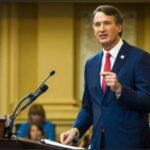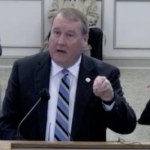by James C. Sherlock
Virginia’s Health Commissioners have a job that is broad and deep in its responsibilities and authorities.By statute, appointees must be physicians.
Each is the chief executive of the Virginia Department of Health (VDH): a central office in Richmond and 35 local health districts.
By Virginia statutes and regulations, they are also the final decision authorities on such issues as the licensing of hospitals and nursing homes and all Certificate of Public Need decisions.
Nursing homes. To the point of this particular discussion, Health Commissioners have since at least 1989 possessed statutory (Code of Virginia § 32.1-135) and regulatory 12VAC5-371-90. Administrative sanctions authority to sanction Virginia nursing homes.
B. The commissioner may impose such administrative sanctions or take such actions as are appropriate for violation of any of the standards or statutes or for abuse or neglect of persons in care. Such sanctions include:
- Restricting or prohibiting new admissions to any nursing facility;
- Petitioning the court to impose a civil penalty or to appoint a receiver, or both; or
- Revoking or suspending the license of a nursing facility.
The results of a FOIA request inform me that not one of them has ever used that authority.
Not once in 34 years. Continue reading














